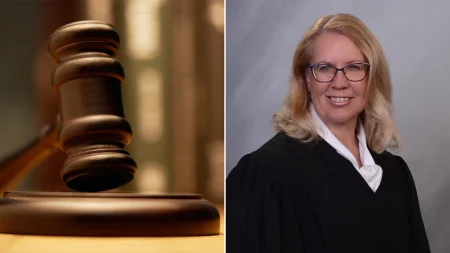Justice Served After 30 Years: Charles Ray Crawford’s Execution for the Murder of Kristy Ray
After more than three decades on death row, 59-year-old Charles Ray Crawford was executed by lethal injection at 6:15 p.m. on Wednesday at the Mississippi State Penitentiary in Parchman, according to the Mississippi Department of Corrections. This execution marked the final chapter in a lengthy legal saga stemming from the horrific kidnapping, rape, and murder of 20-year-old college student Kristy Ray in 1993. The execution proceeded after the U.S. Supreme Court denied Crawford’s request for a stay and Governor Tate Reeves rejected his clemency petition, with the state supreme court similarly dismissing motions to halt the procedure.
The crime that put Crawford on death row occurred on January 29, 1993, when Kristy Ray was abducted from her parents’ home in Tippah County. The investigation quickly focused on Crawford after authorities discovered a ransom note made from magazine cutouts in the attic of his former father-in-law’s home. The note, which mysteriously referenced someone named Jennifer, led police to begin searching for Crawford, who was arrested the following day. During his arrest, Crawford claimed he had been returning from a hunting trip and later told investigators that he had experienced a blackout and couldn’t remember killing Ray. However, the evidence against him was overwhelming.
Investigators determined that Crawford had taken Ray to a remote cabin where he handcuffed, sexually assaulted, and fatally stabbed her in the chest. Compounding the gravity of the situation was the fact that at the time of this crime, Crawford was just days away from standing trial for a separate 1991 assault case in which he was accused of raping a 17-year-old girl and attacking her friend with a hammer. Juries ultimately convicted Crawford in both cases, with his earlier rape conviction serving as an aggravating factor during his capital murder trial. In 1994, he received the death sentence that would hang over him for the next 30 years as his case wound through the appeals process.
Throughout the decades following his conviction, Crawford’s legal team pursued numerous appeals, all of which ultimately proved unsuccessful. His attorneys’ final petition to the U.S. Supreme Court argued that his Sixth Amendment rights had been violated when his defense lawyers conceded guilt and pursued an insanity defense against his expressed wishes. Krissy Nobile, director of the Mississippi Office of Capital Post-Conviction Relief and Crawford’s representative, argued that “It’s almost like he didn’t even get the chance to have [an] innocent or guilty matter because his attorney just overrode his wishes from the outset.” However, the Mississippi Supreme Court rejected this appeal in September, ruling that it had been filed too late to be considered.
The execution represents the culmination of justice that the victim’s family has awaited for three decades. During this time, they endured not only the initial trauma of Kristy’s brutal murder but also the prolonged emotional toll of a justice system that sometimes seems to move at a glacial pace. The case highlights the complex balance between ensuring due process for defendants in capital cases and providing closure for victims’ families. Governor Tate Reeves addressed this tension in a Facebook post on October 13, writing, “Justice must be served on behalf of victims. In Mississippi, it will be.”
Crawford’s execution adds to the ongoing national conversation about capital punishment, the length of time defendants spend on death row, and questions about legal representation in capital cases. While some view executions as the ultimate form of justice for the most heinous crimes, others continue to raise concerns about the fairness and consistency of the death penalty system across the United States. For the Ray family, however, this execution represents the final legal resolution to a nightmare that began in 1993, when a young college student’s life was tragically and violently cut short. After 30 years of legal proceedings, appeals, and waiting, the state of Mississippi has carried out what it deems to be justice for Kristy Ray.







